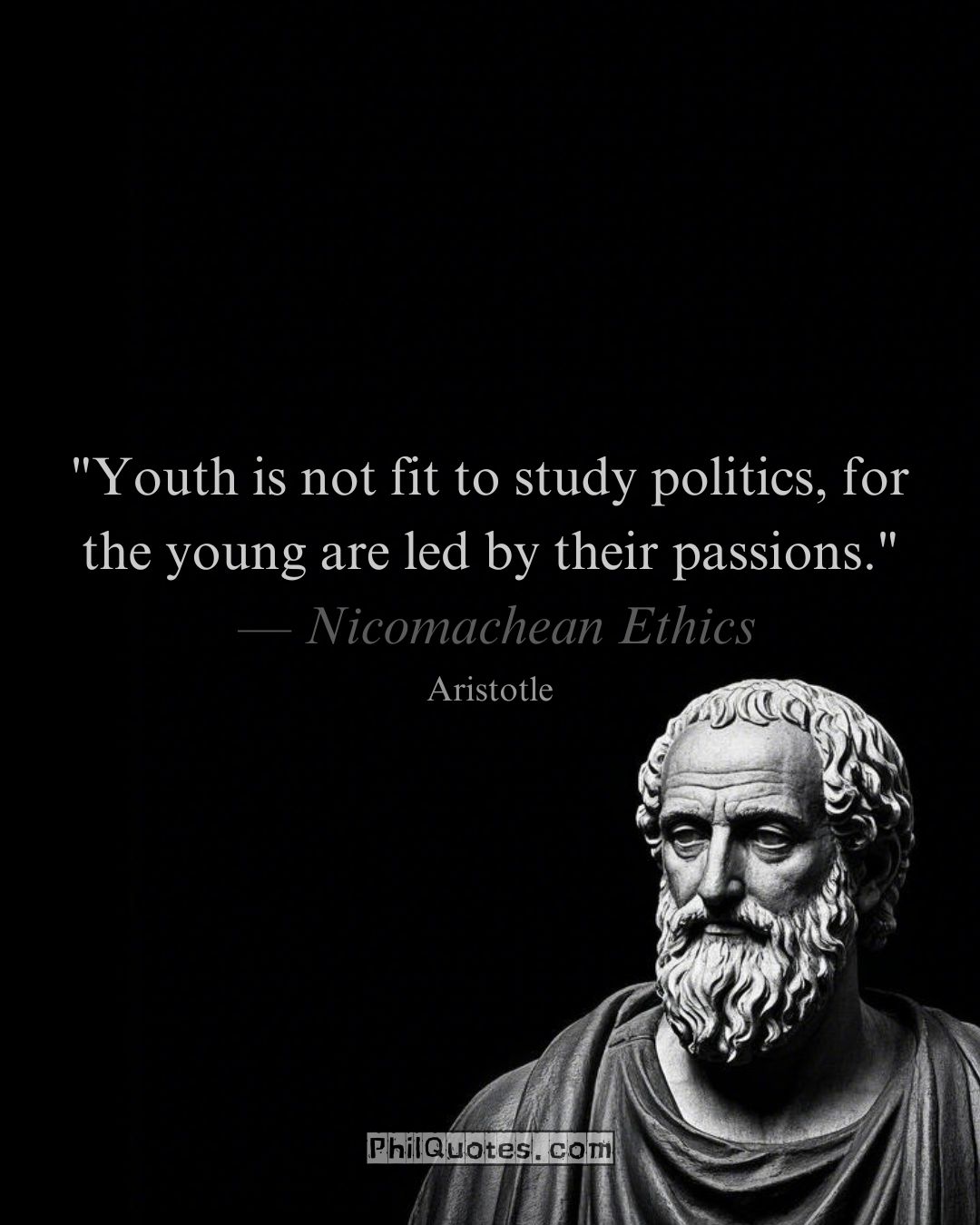
“Youth is not fit to study politics, for the young are led by their passions.”
— Aristotle, Nicomachean Ethics, Book I, Chapter 3
Explanation:
Aristotle’s formula for happiness (eudaimonia) unites two dimensions:
- Complete Virtue — A symphony of moral excellence (courage + justice + wisdom) harmonizing daily actions.
- External Goods — Resources (health, wealth, friends) sustaining this symphony across a lifespan.
- Metaphor: Like a sequoia tree needing both deep roots (virtue) and sunlight (resources), happiness flourishes when inner greatness meets outer nourishment.
Real-World Connection:
① Teacher’s Legacy
- Action: Mentor underprivileged students (virtuous action).
- Resources: Secure grants for scholarships (external support).
- Impact: Graduates lead social reforms 20 years later (complete life legacy).
② Athlete’s Triumph
- Action: Train ethically, rejecting doping (moral integrity).
- Resources: Use prize money to build rehab clinics (virtue-resource loop).
- Impact: Retire coaching Paralympians (lifespan fulfillment).
③ The Golden Equation
- Virtue Alone = Beethoven composing masterpieces while starving (unrealized potential).
- Resources Alone = A billionaire hoarding art in an empty palace (soulless excess).
- Synthesis = Van Gogh’s Sunflowers: Struggle + Patron support = Eternal beauty (eudaimonia achieved).